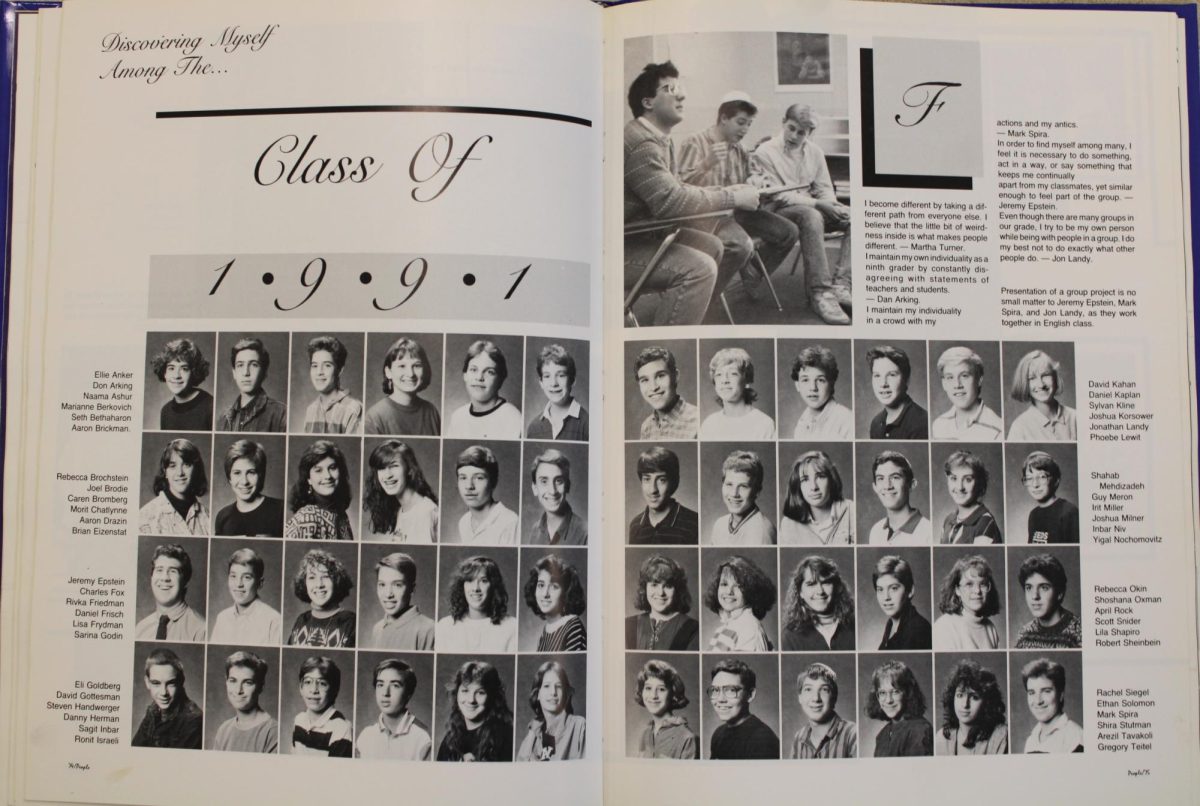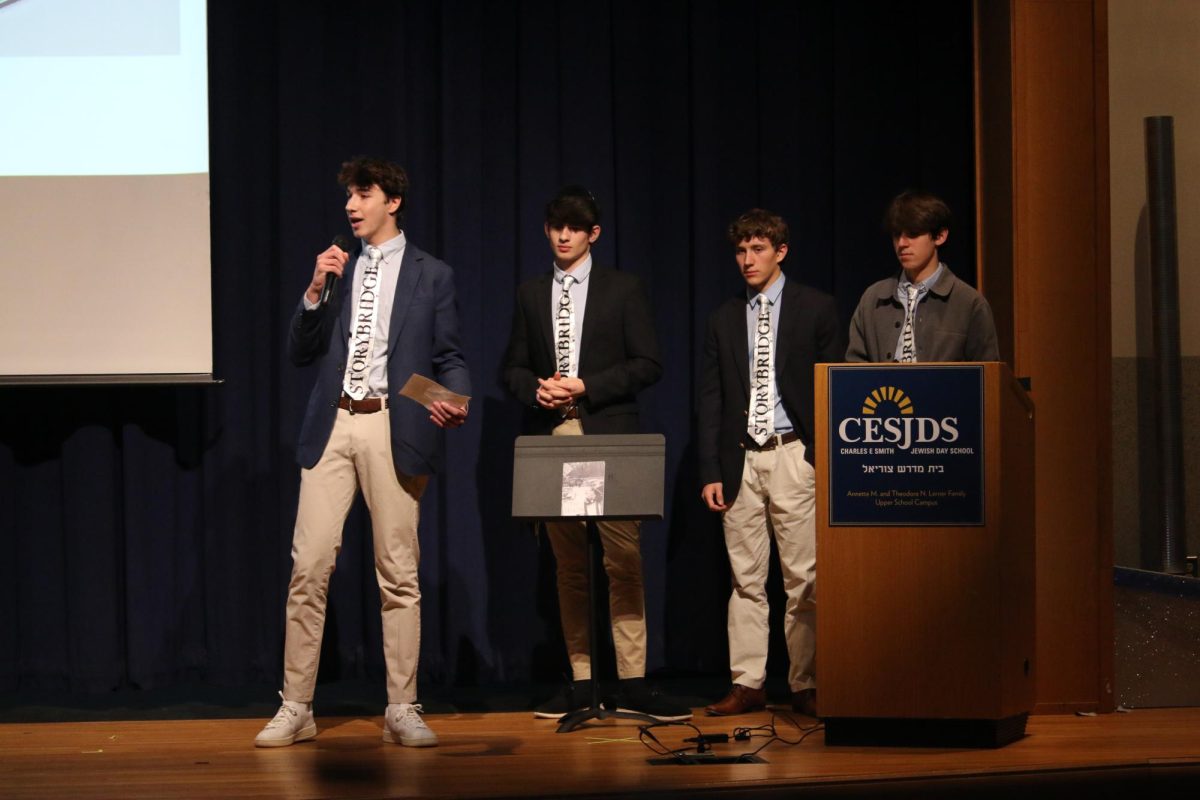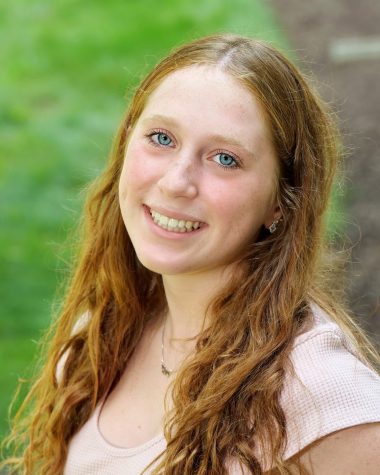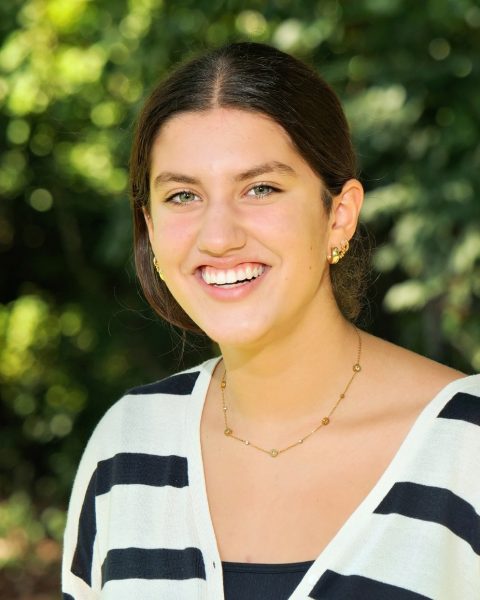Four in five teens struggling with mental health challenges first turn to their peers for support, according to Drew Fidler, Senior Director of the BBYO Center for Adolescent Wellness. That is why JDS introduced the Teen Mental Health First Aid Training this past November. Led by Fidler and clinical social worker Michal Berkson Powell, the juniors completed the six-session training and received a certification at its conclusion.
A grant from the Jewish Federation of Greater Washington paid for the training. Students engaged in activities and viewed first hand accounts of mental health struggles in the forms of art and video clips. Through discussions and role playing, students learned the five-step action plan outlined in the training: look for warning signs, ask how they are, listen up, help them connect with an adult and remind them that your friendship is important.
“We want to make sure that teens know how to help their peers [and] how to recognize red flags,” Fidler said. “Also, how to help connect their peers to appropriate adult help if and when they need it.”
The training not only highlights the action plan, but also brings awareness to the many ways in which peers could be struggling. For example, students learned about panic attacks, stress and strategies to identify and assist someone who might be struggling with substance abuse.
“It taught us how to approach an issue as teenagers, not as mental health professionals,” junior Aviva Stern said. “I think it’s important to distinguish between the two.”
To gain these skills, students partook in activities where they named their ‘five safe adults’ and learned how to identify red flags for friends experiencing mental health crises.
Fidler recalled one particular activity in which the students talked through the types of challenges and struggles their friends could be enduring.
“I think that was a moment where we really saw that it was applicable and really impactful,” Fiddler said. “For everyone in the room.”
Dean of Students and junior grade guidance counselor Roslyn Landy said that one of the ways students can help their peers is to determine if it is a crisis situation and if it is, you need to “break confidence,” and share the information with a trusted adult.
“Sometimes you have to risk having your friend angry at you and sometimes even have to lose a friendship because you need to save a life,” Landy said. “Not getting a friend in crisis help could have tragic results and you would carry that pain the rest of your life.”
Stern said that she noticed a newfound respect between her classmates, and that through the training she understood the limits of how she, as a teen, could help.
“There’s only so much you can do as teenagers…” Stern said. “Do as much as you can, but then at one point, you do need to get a professional adult.”
Landy noted that for some, these workshops might have been recurrent for some students while for others it was totally new.
“We have a number of students who have been or are in therapy. So for some it is repetitious. They have learned the warning signs and strategies in therapy, so it wasn’t new to them,” Landy said. “And then there were some kids for whom this was an eye opening experience. So, it runs the gamut.”
JDS has also been highlighting the importance of mental health through its ‘Wellness Wednesday’ initiatives. On these days, all high school students have the opportunity to hear from speakers or engage with teachers to learn more about mental health. Implemented at the start of the 2023-24 school year by the Health and Wellness Department, these days help emphasize mental health and wellness in the JDS community.
Stern said that this initiative, in tandem with Fidler’s guidance, emphasized the lessons being taught in the training sessions.
“I found it a little bit repetitive at times, but I think the meaning was important…” Stern noted. “I feel ready to approach mental health challenges in the right way.”
Fidler prefaced each session with a trigger warning for the upcoming content, giving students the opportunity to step out if they needed. Fidler hopes that students left the training with the understanding that they didn’t need to feel their best to be healthy.
“Mental health doesn’t mean [being] happy all the time…” Fidler said. “It’s okay to not be okay.”









